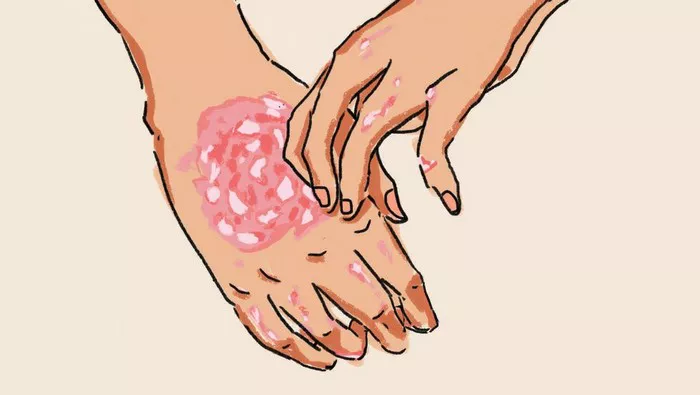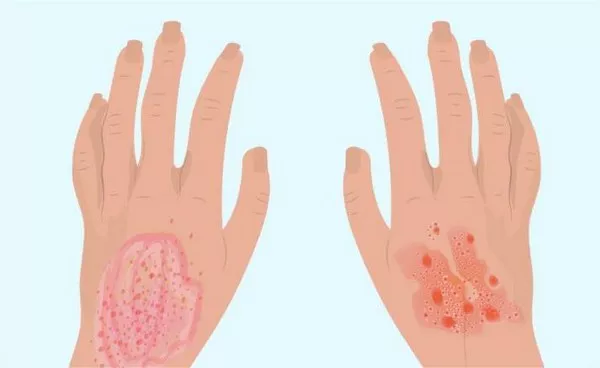A breakthrough in treating inflammatory skin conditions like eczema could be on the horizon, thanks to new research from American scientists. The study reveals that a compound known as SYM2081 shows potential in reducing inflammation and alleviating symptoms such as itching and hives in both mice and human skin samples.
The compound works by targeting specific cells involved in inflammatory responses, called mast cells, which play a critical role in conditions like eczema and rosacea. These findings could pave the way for more effective treatments for a variety of skin disorders.
Rosacea, a chronic skin condition affecting the face, can cause symptoms like acne-like breakouts, visible blood vessels, skin thickening, and facial redness. Professor Daniel Kaplan, a senior author of the study from the University of Pittsburgh, expressed enthusiasm about the clinical implications of the research, noting that current therapies targeting mast cells are limited.
“Mast cell-targeting treatments are rare, and this research holds significant promise for improving therapies for several skin conditions, including rosacea, eczema, urticaria, and mastocytosis,” Kaplan said.
Mast cells are crucial to the body’s immune response. They store histamine and other inflammatory compounds, which are released during a process called degranulation. This release triggers immune reactions that protect against threats such as bee stings or bacterial infections. However, when mast cells are inappropriately activated, they can lead to allergic reactions like swelling, hives, and itching, or even severe anaphylactic responses.
The research, published in Science Translational Medicine, builds on Kaplan’s earlier work. His team previously discovered that neurons in the skin release a neurotransmitter called glutamate, which helps regulate mast cell activity. When this glutamate signaling is blocked, mast cells become hyperactive, resulting in heightened inflammation.
This insight led the researchers to explore whether enhancing glutamate receptor activation could suppress mast cell activity and reduce inflammation. They tested a compound called SYM2081, a derivative of glutamate that activates a receptor known as GluK2, which is found almost exclusively on mast cells.
The results were promising. SYM2081 effectively inhibited mast cell degranulation and proliferation in both mice and human skin samples. When applied topically as a cream, SYM2081 alleviated symptoms of eczema and rosacea in mice, leading to reduced skin inflammation and less severe disease symptoms.
Kaplan believes that a daily cream containing a GluK2-activating compound could become a game-changer in treating rosacea and other inflammatory skin conditions. “While there are effective treatments for certain types of rosacea, many rely on antibiotics and only address some of the symptoms. For issues like facial flushing, there is a significant gap in available treatments,” he said.
With proof of concept now established, the research team plans to develop new compounds that activate the GluK2 receptor and explore their potential in clinical trials. If successful, this novel approach could offer a long-awaited solution for people suffering from inflammatory skin conditions.
Related topics



























